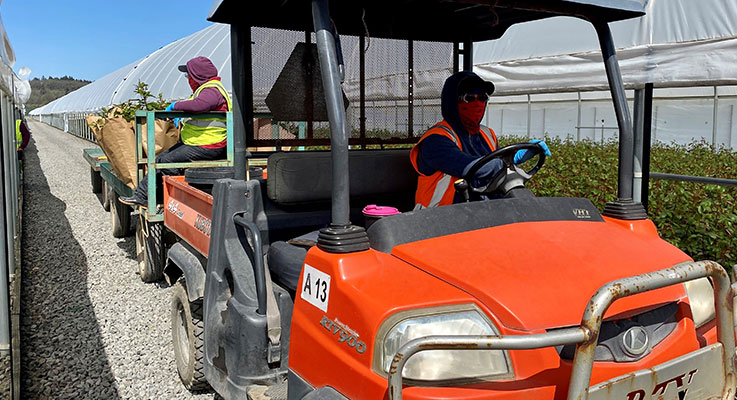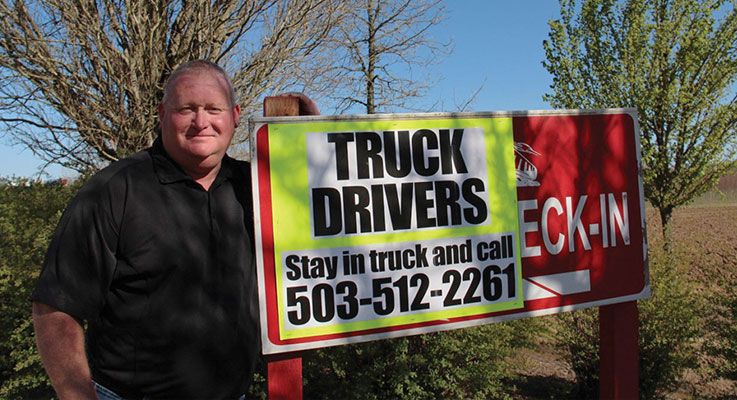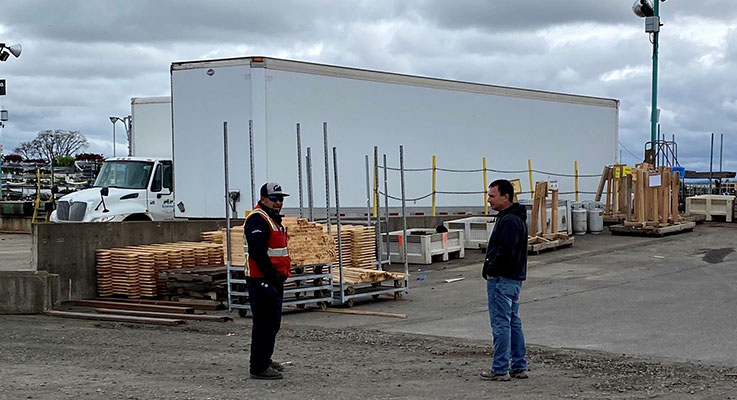
Ben Rough (pronounced “row,” rhymes with “now”) will never forget his first day of work at J. Frank Schmidt & Son Co. nursery in Boring, Oregon.
The newly hired CEO of the company started on March 23 — the same day that Oregon Gov. Kate Brown issued a mandatory stay-in-place order for Oregonians in response to the COVID-19 pandemic.
“We hit the ground running,” Rough said. “There’s nothing that builds trust and a real good working environment than if you come in and deal with a difficult issue.”
While the order allowed nurseries to continue to operate, among many other types of businesses, it required them to implement social distancing measures to protect employees, customers and their families. Nurseries adjusted procedures and rearranged workspaces to keep employees at least six feet apart, outfitted them with personal protective equipment, put up physical barriers, and reduced contact between employees.
All of this had to be invented in response to an unprecedented pandemic.
“We came together as a team to implement (new) procedures as quickly as possible,” Rough said. “The first three days, it was probably nonstop as to how we can deal with things in a different way and provide the safest environment possible for our employees.”

Shane Brockshus, West Coast manager for Minnesota-based Bailey, likewise made communication a priority at the grower’s four West Coast farms (three in Oregon, one in Washington). “We’re communicating more, definitely, and trying to do as a good job as we can with that, at all levels,” he said. “We’re trying to keep transparency with our staff, providing education, resources and reminders of protocols.”
An entire shipping process the company had overhauled to make it more lean was walked back to keep employees working farther apart, thus trading efficiency for added safety.
“If we can keep people healthy and they know we’re making that effort, and we can keep product moving, then it’s all worth the effort,” Brockshus said.
Chris Ames, director of operations at wholesaler Kraemer’s Nursery in Mt. Angel, Oregon, said the nursery cut back on contract workers but has been able to keep all regular employees on board. “We’ve been trying to do the critical work and pulling orders,” she said.
Management and employees at Kraemer’s worked as a team to adjust operations, comply with the social distancing order, and protect employees.
The nursery changed how it transports plants and people around the nursery, imposing a limit of one person per Kubota utility vehicle, with one additional worker allowed to ride a trailer pulled behind. “If we have to make an extra trip, that’s what we do,” Ames said.
According to Rough, Schmidt has kept employees working in smaller groups that are consistent — no one switches to a different farm or location.
Several nurseries reported they are involving employees in problem solving.
“People are coming up with some great ideas from the internal part of the organization, trying to say what about this or what about that,” Rough said. “We encourage people to come up with ideas and we can implement those safe practices.”

Likewise at Bailey.
“You see the people innovate,” Brockshus said. “It’s what you do, and what you have to do, in this industry.”
The pandemic put growers in the position of managing their operations more carefully than ever before, while at the same time dealing with the prospect of a decline in sales.
The Oregon Association of Nurseries surveyed members informally, finding that nearly 98% of member companies that responded stayed open after the stay-in-place order came down. However, nearly 46 percent of the members indicated they were using modified procedures such as remote work, limited staff or limited hours.
Three members said they closed their businesses either due to worker illness or a management decision not to expose workers to potential risk. One business (not a grower) was covered by the state’s order for certain businesses to close.
By and large, members reported they were having a strong season until mid-March, when cases of the COVID-19 illness began to be more widely reported, and governors began imposing social distancing measures and shutdowns. From that point, OAN members responding to the survey indicated a negative effect on business from the pandemic, and sources interviewed by Digger agreed.
“We had a pretty decent March, but then April, it’s just not there,” said Vinny Grasso, sales manager at A&R Spada Farms, a large wholesale grower based in St. Paul, Oregon.
Still, Grasso did see some new orders from garden centers doing their best to stay open and serve customers. “Our customer base is persevering,” he said. “They really want the business and they’re going to figure it out.”
Brockshus, at Bailey, said it was too early in mid-April to know the full effect on sales. “We know it’s going to affect us,” he said. “The unknown is how deeply. It’s so fragmented, where it’s state by state, sometimes at the county or city level, what our industry is allowed to do, and that keeps changing.”
Curt Kipp is the director of publications and communications at the Oregon Association of Nurseries, and the editor of Digger magazine.


